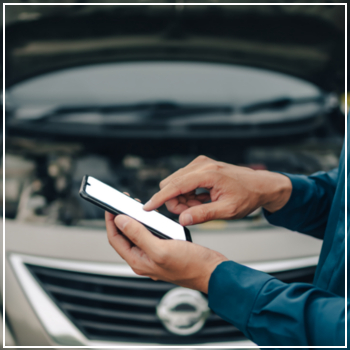 Your car’s engine is the core of its performance and reliability. When problems arise, they can be more than just a hassle—they might leave you stranded or lead to expensive repairs if not addressed quickly.
Your car’s engine is the core of its performance and reliability. When problems arise, they can be more than just a hassle—they might leave you stranded or lead to expensive repairs if not addressed quickly.
Engines are complex systems made up of many interconnected parts, from the battery and ignition system to fuel delivery and cooling mechanisms. Understanding common issues can help you identify problems early and avoid major breakdowns. Here are some of the most frequent engine-related concerns and what they could mean.
Engine Won’t Start
If your car won’t start, it’s usually a sign that something in the starting process is failing. The most common cause is a weak or dead battery, but other components like the alternator, starter motor, or ignition switch could also be at fault. Other potential issues include:
- A faulty fuel pump or clogged fuel filter
- Corroded or loose battery terminals
- Low or contaminated motor oil
- Problems with the timing belt or chain
- Failed catalytic converter (which can restrict exhaust flow)
These issues can prevent the engine from receiving the necessary power, fuel, or compression to start properly. If you're facing this problem, it's best to have a professional inspect the system before it leads to further damage.
Engine Misfiring
Misfiring occurs when one or more cylinders fail to ignite properly. This often points to worn-out spark plugs, which need regular replacement. However, even if the spark plugs look fine, an improper air/fuel mixture can cause misfires. Too much air or too much fuel can disrupt combustion and reduce engine efficiency.
Overheating
Even in cooler weather, overheating is a real risk. It typically happens when there's not enough or poor-quality coolant circulating through the system. A faulty thermostat, radiator, or cooling fan can also contribute to this issue. Over time, buildup from dirty coolant can clog the system, reducing its ability to regulate temperature effectively.
Unusual Noises
Unusual sounds like knocking, rattling, or grinding can signal serious problems. These noises may come from internal engine components such as the timing belt, piston rings, or bearings. In some cases, excessive heat or pressure in the combustion chamber can cause a pinging sound, known as detonation. If you hear these sounds, it’s important to get your vehicle checked right away.
Oil Problems
Engine oil is essential for lubrication and reducing friction between moving parts. If the oil level is low or the oil has become contaminated, it can lead to increased wear and even engine failure. Water mixing with oil, oil oxidation due to heat, or oil pump failure can all affect performance and potentially cause long-term damage.
Sensor Malfunctions
Modern vehicles rely heavily on sensors to monitor engine performance. The oxygen sensor, in particular, plays a key role in regulating the air/fuel mixture. If it fails, it can cause poor fuel economy, reduced power, and even stalling. Regular maintenance and timely sensor replacements can prevent these issues.
Excessive Smoke
Smoke coming from your engine can indicate a variety of problems. While it may be caused by overheating, it could also result from oil consumption, fluid leaks, or a lack of proper ventilation. If you notice thick smoke from the exhaust, it might be a sign that the engine is burning oil or coolant.
If you're experiencing any of these symptoms, don't ignore them. Early detection and professional repair can save you time, money, and stress. At DaSilva’s, we specialize in auto body repairs and engine diagnostics. Contact our Naugatuck location today to schedule an inspection and keep your car running smoothly for years to come.
Ceramic Lagging
Xinxiang Zhike Machinery Equipment Co.Ltd , https://www.zhikefilter.com